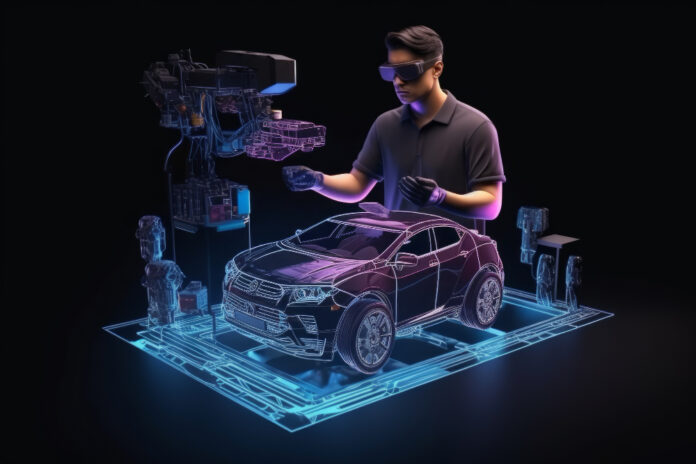The future of automobiles is no longer just a vision of flying cars in science fiction movies. It is unfolding before our eyes with innovations in electric mobility, autonomous driving, and connected smart vehicles that are changing the way we think about transportation. Every passing year brings us closer to a reality where vehicles are not just machines for travel but intelligent companions that redefine convenience, safety, and sustainability.
The Changing Landscape of the Future of Automobiles
For over a century, automobiles have been powered by fossil fuels, built on mechanical engineering, and designed primarily for functionality. Today, however, the future of automobiles looks dramatically different. Electric vehicles are becoming mainstream, smart technologies are integrating into every part of the driving experience, and sustainability is leading the design of cars.
Car companies worldwide are investing billions in research and development, signaling that the next decade will reshape how society views mobility. This transformation is not only about engineering but also about creating a lifestyle built around cleaner energy and smarter choices.
Electric Cars and the Driving Revolution
One of the biggest shifts shaping the future of automobiles is the rise of electric cars. From being considered a niche product, electric vehicles have become a practical choice for millions of drivers. Governments across the globe are pushing for a greener future with incentives, charging infrastructure, and policies that encourage manufacturers to replace traditional fuel engines.
Imagine a child today growing up in a city filled with quiet, emission-free cars. For them, the roar of an engine may become a distant memory, replaced by the smooth hum of electric motors. These changes are not just about cars but about cleaner air, healthier cities, and a step toward tackling climate change.
How Autonomous Cars Fit Into the Future of Automobiles
Autonomous cars once seemed futuristic, but they are now in active development with trials happening in several countries. The future of automobiles promises a world where cars drive themselves, navigating traffic with precision and reducing human error.
Picture a busy parent who no longer has to juggle school runs, work, and errands because their car can safely pick up the kids, drive them to school, and return for another task. This is the kind of real-life convenience autonomous vehicles can bring. Beyond personal use, logistics and delivery industries are set to change completely as driverless fleets operate 24/7 without fatigue.
Connected Vehicles and Smarter Living
Another crucial part of the future of automobiles is connectivity. Cars are becoming part of the internet of things, linking seamlessly with smartphones, homes, and even city infrastructure. A vehicle that communicates with traffic signals, maps, and other vehicles can predict congestion, avoid accidents, and improve fuel efficiency.
This connected future makes driving more personalized. For example, a car could adjust temperature, music, or seat positions based on the driver’s preferences before they even enter the vehicle. In essence, the automobile of tomorrow becomes an extension of personal lifestyle choices.
Environmental Impact and Sustainability
The future of automobiles cannot be discussed without focusing on sustainability. Car manufacturers are under growing pressure to reduce emissions not only from vehicles but also from production processes. Innovations like recyclable materials, solar-powered panels, and eco-friendly batteries are shaping the cars of tomorrow.
Real-life examples are already visible. Companies are experimenting with interiors made from plant-based fibers and biodegradable materials. Entire car factories are being run on renewable energy sources. These changes ensure that progress in mobility does not come at the cost of the planet.
The Role of Artificial Intelligence in Automobiles
Artificial intelligence is playing a defining role in the future of automobiles. From voice-activated assistants to predictive maintenance, AI is making vehicles smarter and more efficient. Imagine a car that learns your driving habits, reminds you of service dates, or predicts mechanical issues before they become serious.
In cities, AI-driven systems will help manage traffic better by coordinating self-driving cars and reducing congestion. This creates not only convenience but also greater safety for both drivers and pedestrians.
Personal Stories That Reflect the Change
Consider a family who switched from a gas-powered SUV to an electric vehicle. At first, they were nervous about charging stations and battery range. But within months, they realized the convenience of overnight charging at home, the lower cost of maintenance, and the satisfaction of contributing to a cleaner environment.
Or think of a young student who uses a car-sharing app to summon an autonomous taxi for late-night study sessions. This level of accessibility would have been unimaginable just a decade ago but is quickly becoming part of everyday reality. These stories reflect how the future of automobiles is directly impacting lives.
Challenges That Shape the Future
The path forward is not without challenges. Charging infrastructure for electric cars is still limited in many regions. Autonomous cars raise questions about safety regulations and ethical decision-making. Cybersecurity becomes a serious issue as cars become more connected.
Yet, history shows that innovation thrives when challenges are met head-on. Just as seatbelts, airbags, and GPS once seemed advanced, the hurdles facing the future of automobiles will be solved with creativity, investment, and global collaboration.
The Future as a Shared Experience
One of the most exciting aspects of the future of automobiles is that it is not limited to elite buyers or wealthy countries. Car-sharing services, ride-hailing apps, and community-driven electric fleets are making modern mobility accessible to wider populations. Cities are rethinking urban planning to integrate smart vehicles into public transportation.
This shared experience ensures that the transformation of automobiles does not just benefit individuals but entire societies. Safer roads, cleaner air, and efficient systems mean a better quality of life for everyone.
Technology That Will Define Tomorrow’s Roads
Looking ahead, innovations like wireless charging roads, flying taxis, and solar-powered highways might sound ambitious, but they are already being tested. The future of automobiles will likely merge traditional vehicles with entirely new forms of mobility, creating options tailored to diverse lifestyles.
Young generations may soon view cars not as static possessions but as flexible services available when needed. This change in mindset could redefine car ownership, making mobility more about accessibility than ownership.
Read also:
the blog redandwhitemagz .com
#redandwhitemagz.com
a redandwhitemagz.com blog
www. redand whitemagz .com

